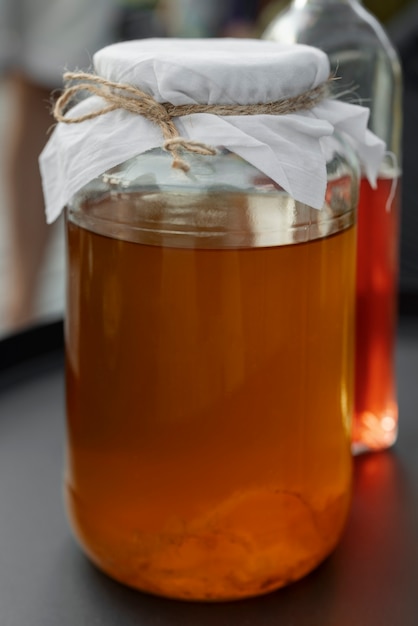
Fermented foods, like sauerkraut, kimchi, and kefir, are everywhere these days, but do they actually benefit your health? Here’s what we found out.
Thirteen years ago, Donna Schwenk, 41 and pregnant with her third child, developed preeclampsia and her liver began to fail. Her baby, Holli, was delivered prematurely and weighed just four pounds. Donna herself faced diabetes, high blood pressure, and extreme fatigue, making it difficult to care for her newborn. Desperate for a solution, she discovered kefir—a fermented milk drink high in beneficial bacteria—and started adding it to Holli’s bottles. Within a month, Holli gained four pounds. Donna also began drinking kefir herself, and in 12 weeks, her blood pressure and blood sugar returned to normal, and she felt well for the first time in years.
Donna Schwenk wrote “Cultured Food for Life,” and credits her and her baby’s health improvements to the benefits of fermented foods. Emerging research supports that fermented foods can enhance digestion, immunity, weight metabolism, and even mood.
In the US, Schwenk participated in a PBS special called “Health Breakthroughs,” which explored how fermented foods like kefir, yogurt, and sauerkraut can improve health. The New York Times has also recognized fermented foods as a major future food trend.
Fermenting foods at home is becoming popular, as highlighted in Michael Pollan’s forward to “The Art of Fermentation,” where he shares his passion for DIY food fermentation. Nutritionist Kimberly Snyder recommends her celebrity clients consume fermented vegetables every day to improve skin, energy, and weight loss.
Increasingly, research highlights the gut as central to overall health, with clinical nutritionist Kathie Swift noting its importance in digestion and nutrient absorption. Gut bacteria has also been linked to weight management and mental health, with studies showing that altering gut bacteria in mice can lead to weight loss and reduced anxiety.
Each person’s gut contains trillions of bacteria, and as we age, the balance between good and bad bacteria can shift, often due to diet and medication. This imbalance can lead to health issues such as food intolerances, chronic fatigue, and skin disorders. Registered nutritional therapist Daniel O’Shaughnessy emphasizes the importance of eating a variety of fermented foods to ensure a diverse range of good bacteria.
Some common fermented foods include kefir, sauerkraut, miso, coconut yogurt, and kombucha tea. It’s recommended to start with small amounts and gradually increase intake to avoid digestive discomfort. Looking for products with raw, live cultures and making some fermented foods at home can be beneficial.
Fermentation has a long history in various cultures, from Korea’s kimchi to Japan’s miso soup and natto. While trendy now, the practice has been valued for its health benefits for centuries. However, moderation and variety are key, as consuming too much can upset the stomach.
Incorporating small amounts of fermented foods into your diet, combined with prebiotic foods like onions and garlic, can help support a healthy gut. If you’re new to this, starting with simple recipes and gradually expanding can make the transition easier.